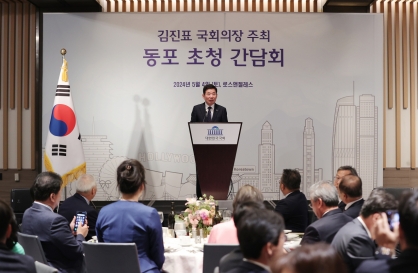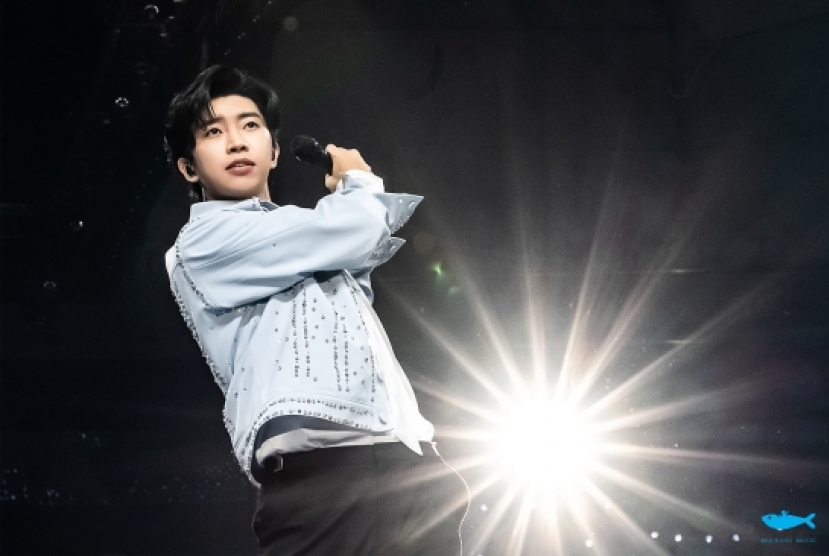U.N. monitor accuses N.K. of crimes against humanity
By Korea HeraldPublished : March 12, 2013 - 20:33
GENEVA (AFP) ― A U.N. human rights monitor on Monday accused North Korea of committing a string of crimes against humanity, laying out a litany of abuses before the world body’s top rights forum.
“The violations in the DPRK have reached a critical mass,” Marzuki Darusman told the U.N. Human Rights Council, using the acronym of the country’s official name, the Democratic People’s Republic of Korea.
Darusman said that he had identified nine areas of key concern, among them depriving the population of food, torture, arbitrary detention and the secretive regime’s denial of freedom of expression.
“I believe that many, if not all, of the nine patterns of violation, identified in my present report, may amount to crimes against humanity, committed as part of systematic and or widespread attacks against civilian population,” Darusman, who hails from Indonesia, told the Council as he presented a report on the situation in North Korea.

He also highlighted concerns about a network of political prison camps believed to hold at least 200,000 people, including detainees who were born in captivity because entire families are thought to have been sent there.
“I also believe that grave human rights violations in the prison camps or even the mere existence of such camps, with slave-like conditions for political prisoners, may qualify as crimes against humanity,” Darusman said.
He condemned Pyongyang’s kidnapping of foreigners, which the country has partially acknowledged, while claiming most subsequently died in North Korea.
Abductees, notably from Japan, are thought to have been used to train North Korean agents about foreign culture, and Pyongyang’s failure to come clean has remained a thorn in relations with Tokyo.
North Korea, run by a Stalinist regime since the end of World War II, is one of the most isolated nations on the planet.
Over recent years, it has locked horns with the international community over its nuclear programme, repeatedly testing atomic bombs and missiles, and military tensions have spiked with South Korea.
But while devoting spending to its nuclear activities, the North has simultaneously tapped foreign aid after suffering intermittent famines.
There have been forecasts of a thaw in North Korea’s relations with the outside world since Kim Jong-un ― believed to be around 30 ― succeeded his late father Kim Jong-il in 2011.
“There’s been a change in style in North Korea,” said the U.S. special envoy for North Korean human rights, Robert King. “But what we’re interested in seeing is whether there has been a change in substance,” he told reporters in Geneva on Monday.
Barred from actually visiting the remote nation, Darusman reports on the situation in part by speaking to North Koreans who have managed to flee, though Pyongyang’s power to silence extends beyond its closely-guarded border.
“Concerns about reprisals, including against family members who are left behind in the country, make it difficult for individual victims to come forward with certain details of the abuses that they had to endure,” the U.N. monitor said.
He called for an international commission of inquiry into the human rights record of North Korea, which repeatedly has refused to cooperate with Darusman and past U.N. investigators.
Japan and the European Union, with the backing of other Western countries including the United States, are set to lodge a resolution at the Council ― which wraps up its month-long sitting on March 22 ― to create such a commission.
The U.S. ambassador to the Council, Eileen Donahue, told reporters the situation in North Korea was “truly abhorrent.”
“This is the most severe, chronic human rights situation in the world today,” she said.
North Korean delegate Kim Ju-song claimed Darusman was in league with “hostile forces”, citing Japan, the EU and the US.
“We make it clear again. The human rights violations identified in this report do no exist,” Kim told the Council. “The government of the DPRK will continue to protect human rights and fundamental freedoms of its people.”
North Korea won support at the Council from China, whose delegate warned that creating a commission of inquiry could “escalate tensions” on the Korean Peninsula.
Other nations including Iran, Cuba, Venezuela, Vietnam and Syria also criticised the plan, calling for dialogue and accusing the West of double standards.
“The violations in the DPRK have reached a critical mass,” Marzuki Darusman told the U.N. Human Rights Council, using the acronym of the country’s official name, the Democratic People’s Republic of Korea.
Darusman said that he had identified nine areas of key concern, among them depriving the population of food, torture, arbitrary detention and the secretive regime’s denial of freedom of expression.
“I believe that many, if not all, of the nine patterns of violation, identified in my present report, may amount to crimes against humanity, committed as part of systematic and or widespread attacks against civilian population,” Darusman, who hails from Indonesia, told the Council as he presented a report on the situation in North Korea.

He also highlighted concerns about a network of political prison camps believed to hold at least 200,000 people, including detainees who were born in captivity because entire families are thought to have been sent there.
“I also believe that grave human rights violations in the prison camps or even the mere existence of such camps, with slave-like conditions for political prisoners, may qualify as crimes against humanity,” Darusman said.
He condemned Pyongyang’s kidnapping of foreigners, which the country has partially acknowledged, while claiming most subsequently died in North Korea.
Abductees, notably from Japan, are thought to have been used to train North Korean agents about foreign culture, and Pyongyang’s failure to come clean has remained a thorn in relations with Tokyo.
North Korea, run by a Stalinist regime since the end of World War II, is one of the most isolated nations on the planet.
Over recent years, it has locked horns with the international community over its nuclear programme, repeatedly testing atomic bombs and missiles, and military tensions have spiked with South Korea.
But while devoting spending to its nuclear activities, the North has simultaneously tapped foreign aid after suffering intermittent famines.
There have been forecasts of a thaw in North Korea’s relations with the outside world since Kim Jong-un ― believed to be around 30 ― succeeded his late father Kim Jong-il in 2011.
“There’s been a change in style in North Korea,” said the U.S. special envoy for North Korean human rights, Robert King. “But what we’re interested in seeing is whether there has been a change in substance,” he told reporters in Geneva on Monday.
Barred from actually visiting the remote nation, Darusman reports on the situation in part by speaking to North Koreans who have managed to flee, though Pyongyang’s power to silence extends beyond its closely-guarded border.
“Concerns about reprisals, including against family members who are left behind in the country, make it difficult for individual victims to come forward with certain details of the abuses that they had to endure,” the U.N. monitor said.
He called for an international commission of inquiry into the human rights record of North Korea, which repeatedly has refused to cooperate with Darusman and past U.N. investigators.
Japan and the European Union, with the backing of other Western countries including the United States, are set to lodge a resolution at the Council ― which wraps up its month-long sitting on March 22 ― to create such a commission.
The U.S. ambassador to the Council, Eileen Donahue, told reporters the situation in North Korea was “truly abhorrent.”
“This is the most severe, chronic human rights situation in the world today,” she said.
North Korean delegate Kim Ju-song claimed Darusman was in league with “hostile forces”, citing Japan, the EU and the US.
“We make it clear again. The human rights violations identified in this report do no exist,” Kim told the Council. “The government of the DPRK will continue to protect human rights and fundamental freedoms of its people.”
North Korea won support at the Council from China, whose delegate warned that creating a commission of inquiry could “escalate tensions” on the Korean Peninsula.
Other nations including Iran, Cuba, Venezuela, Vietnam and Syria also criticised the plan, calling for dialogue and accusing the West of double standards.
-
Articles by Korea Herald



![[AtoZ Korean Mind] Does your job define who you are? Should it?](http://res.heraldm.com/phpwas/restmb_idxmake.php?idx=644&simg=/content/image/2024/05/06/20240506050099_0.jpg&u=)















